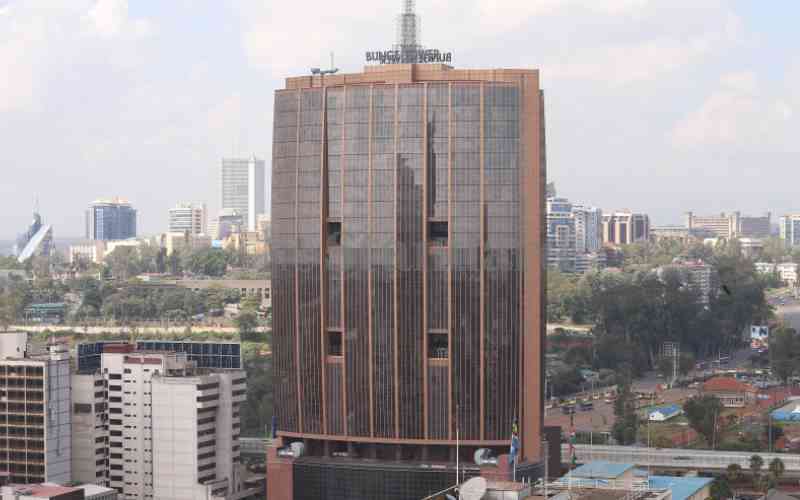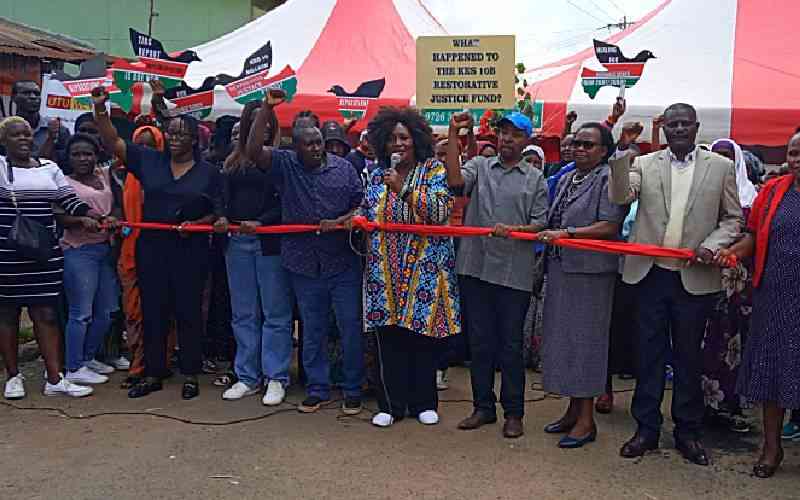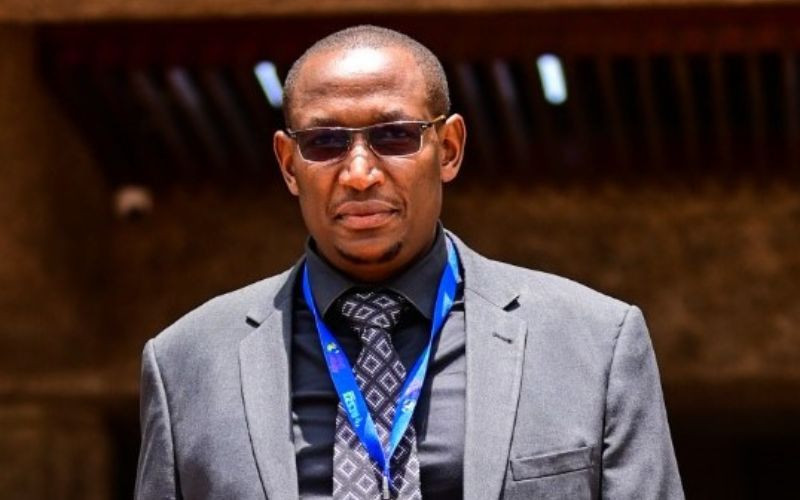Let us not trivialise issues of life and death. Life is sacred. I don’t think the fact that we lost 1,300 people during the post-election violence (PEV) is a matter we should deal with lightly. Families lost loved ones. Children were left without bread winners when mother and father were killed. A man like Ndege saw his family of eleven burnt alive in Naivasha: he lives with scars of that horrible incident to this day, not knowing how to reconcile with man’s inhumanity to man.
Twenty thousand people were rendered homeless, some of who still live in camps to this day. Many more lost valued property, and the system of compensation never worked fairly for all.
It is in the above context that Justice Phillip Waki’s Commission, after a thorough investigation, recommended to Kenyans what needed to be done to deal with the PEV. Chief among the Waki Report recommendations was what to do with perpetrators of the violence, including those who meddled with the elections so as to trigger the chaos which caused loss of life and property.
Waki handed an envelope to Former UN Secretary General Kofi Annan containing a list of people who bore maximum responsibility for PEV, and he requested Kenyans to set up a Special Tribunal to try such cases so that justice could be done in our Republic.
The Coalition Government then presented to the Eleventh Parliament a Bill to set up a local tribunal twice without success.
There was a solid group which, with cries of “Don’t be vague go to The Hague”, was determined to defeat the noble intentions of the Coalition Government, arguing that the justice system in Kenya was too weak and compromised to handle PEV cases.
Along with the President and the Prime Minister, I was among Cabinet Ministers who believed strongly in a local tribunal. But we were defeated, giving Kofi Annan no alternative but to hand the envelope over to International Criminal Court (ICC) at The Hague.
For old memories sake, I recently received, through Whatsapp, a video clip showing two prominent politicians arguing persuasively on why it was important to send those in the envelope — or outside it — to The Hague. “Wapande boda boda, wapande wheel burrow, wapande basi: waende Hague.” That is what he counselled.
Yet another politician said, in no uncertain terms, that the preference for The Hague was the decision of all of us as leaders. “Sisi tuliamua bungeni ya kwamba kesi zote zipelekwe Hague bila wasi wasi.”
I am surprised that some politicians have such short memories. If they don’t, then it must be an issue of political amnesia. With so much information in the public domain, I am really shocked that individuals of reasonably sound minds can stand in public and claim those who fought for a local tribunal are those who promoted The Hague agenda; absolute balderdash! In any case, the rhetoric only started changing once The Hague became a reality.
The script then changed from The Hague being the right place to try those most responsible for the violence; more important was why only a few were taken there. But this is a question only Waki can answer. To avoid confronting the commission and begin looking for scapegoats elsewhere is committing the sin of being a moral coward.
Moses Kuria may shout hot words to the chagrin of the microphone in an attempt to drag my name into the ICC matter but he won’t succeed. Why? Because facts are facts: they cannot be manufactured on the platform of populist politics.
It is true that, as secretary general of ODM, I wrote a letter to the UN Security Council on March 13, 2011 opposing the deferral of the cases involving Uhuru Kenyatta and William Ruto. This letter is a public document which any Kenyan can access. It was never a secret. The argument in the letter was that deferring the cases would have been prejudicial to the interests of the PEV victims.
Moreover, Kenyans needed a closure on this matter. In any case, as the famous dictum goes, justice delayed is justice denied. Both Uhuru Kenyatta and William Ruto were presumed innocent before being proven guilty in a court of law. It would have been in their interest to oppose deferral but they didn’t. We therefore differed with the shuttle diplomacy that the government was then involved in to campaign for deferral in the capitals of Security Council members.
It is this letter that I see Kuria waving at press conferences as evidence of our having been involved in coaching witnesses. This is really absurd. On November 15, 2013 the Security Council decided, by a majority of three, to deny the Kenyan government the appeal to defer the cases at The Hague.
Stay informed. Subscribe to our newsletter
That same day, an opinion poll carried in Kenya showed that 75 per cent of Kenyans believed the cases should not be deferred. The next day, on November 16, there was a long article in the “Economist” analysing the Security Council decision and its implications to Kenya. All this had nothing to do with witness coaching that Kuria seems to connect my letter to.
Notwithstanding all that, as a law abiding citizen, I am prepared to appear before any court of law and answer to charges of interfering with, or coaching ICC witnesses; an undertaking which seems to have occupied Kuria for some time in the past.
What is more interesting is that I am accused by Kuria of attending meetings whose dates and geography have not been revealed to me.
But I suppose these are surprises the good gentleman is waiting to pull on me in court. God bless my soul. Two things we need to do as Kenyans: One, continue telling the truth and not flattering power to gain a calabash of porridge. Two, accept the urgent need to hold a genuine Justice, Truth and Reconciliation exercise to put a closure to our dark history which has left many wounds gaping and hurting in our souls.
We may be moving physically and apparently enjoying ourselves. But deep inside us, we are a sick nation: pretentious, hypocritical and unforgiving. I am sure most of you feel this when you have to put up with smiles not meant, laughs appropriately contrived and praises only valid as long as they are spoken.
Let us look at The Hague as only a single part of an array of problems that continue to rock our national cohesion. The judges at the ICC did not manufacture the Kenyan cases: we took the cases there.
As the politician referred to above argued at a public rally: “Sisi kama viongozi tuliamua kupeleka kesi zote Hague.” But the little imp in the same leaders is now compelling them to say something completely different so as to appear as victims of some evil genius.
I have a feeling that in a Truth, Justice and Reconciliation exercise, the National Intelligence Service (NIS) will actually be our salvation. From what I know of how government works, this service should be better informed regarding how security was breached during the post-election violence.
It should also know who is responsible for witness protection, coaching, elimination, bribing and even confusing. I rest my case.
 The Standard Group Plc is a
multi-media organization with investments in media platforms spanning newspaper
print operations, television, radio broadcasting, digital and online services. The
Standard Group is recognized as a leading multi-media house in Kenya with a key
influence in matters of national and international interest.
The Standard Group Plc is a
multi-media organization with investments in media platforms spanning newspaper
print operations, television, radio broadcasting, digital and online services. The
Standard Group is recognized as a leading multi-media house in Kenya with a key
influence in matters of national and international interest.
 The Standard Group Plc is a
multi-media organization with investments in media platforms spanning newspaper
print operations, television, radio broadcasting, digital and online services. The
Standard Group is recognized as a leading multi-media house in Kenya with a key
influence in matters of national and international interest.
The Standard Group Plc is a
multi-media organization with investments in media platforms spanning newspaper
print operations, television, radio broadcasting, digital and online services. The
Standard Group is recognized as a leading multi-media house in Kenya with a key
influence in matters of national and international interest.








